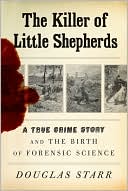Category Books
- Fiction Books & Literature
- Graphic Novels
- Horror
- Mystery & Crime
- Poetry
- Romance Books
- Science Fiction & Fantasy
- Thrillers
- Westerns
- Ages 0-2
- Ages 3-5
- Ages 6-8
- Ages 9-12
- Teens
- Children's Books
- African Americans
- Antiques & Collectibles
- Art, Architecture & Photography
- Bibles & Bible Studies
- Biography
- Business Books
- Christianity
- Computer Books & Technology Books
- Cookbooks, Food & Wine
- Crafts & Hobbies Books
- Education & Teaching
- Engineering
- Entertainment
- Foreign Languages
- Game Books
- Gay & Lesbian
- Health Books, Diet & Fitness Books
- History
- Home & Garden
- Humor Books
- Judaism & Judaica
- Law
- Medical Books
- New Age & Spirituality
- Nonfiction
- Parenting & Family
- Pets
- Philosophy
- Political Books & Current Events Books
- Psychology & Psychotherapy
- Reference
- Religion Books
- Science & Nature
- Self Improvement
- Sex & Relationships
- Social Sciences
- Sports & Adventure
- Study Guides & Test Prep
- Travel
- True Crime
- Weddings
- Women's Studies
The Killer of Little Shepherds: A True Crime Story and the Birth of Forensic Science »

Authors: Douglas Starr
ISBN-13: 9780307266194, ISBN-10: 0307266192
Format: Hardcover
Publisher: Knopf Doubleday Publishing Group
Date Published: October 2010
Edition: (Non-applicable)
Author Biography: Douglas Starr
Douglas Starr is codirector of the Center for Science and Medical Journalism and a professor of journalism at Boston University. His book Blood: An Epic History of Medicine and Commerce won the 1998 Los Angeles Times Book Prize and became a PBS-TV documentary special. A veteran science, medical, and environmental reporter, Starr has contributed to many national publications, including Smithsonian, Audubon, National Wildlife, Sports Illustrated, the Los Angeles Times, The Christian Science Monitor, and Time, and has served as a science editor for PBS-TV. He lives near Boston.
Book Synopsis
A riveting true crime story that vividly recounts the birth of modern forensics.
At the end of the nineteenth century, serial murderer Joseph Vacher, known and feared as “The Killer of Little Shepherds,” terrorized the French countryside. He eluded authorities for years—until he ran up against prosecutor Emile Fourquet and Dr. Alexandre Lacassagne, the era’s most renowned criminologist. The two men—intelligent and bold—typified the Belle Époque, a period of immense scientific achievement and fascination with science’s promise to reveal the secrets of the human condition.
With high drama and stunning detail, Douglas Starr revisits Vacher’s infamous crime wave, interweaving the story of how Lacassagne and his colleagues were developing forensic science as we know it. We see one of the earliest uses of criminal profiling, as Fourquet painstakingly collects eyewitness accounts and constructs a map of Vacher’s crimes. We follow the tense and exciting events leading to the murderer’s arrest. And we witness the twists and turns of the trial, celebrated in its day. In an attempt to disprove Vacher’s defense by reason of insanity, Fourquet recruits Lacassagne, who in the previous decades had revolutionized criminal science by refining the use of blood-spatter evidence, systematizing the autopsy, and doing groundbreaking research in psychology. Lacassagne’s efforts lead to a gripping courtroom denouement.
The Killer of Little Shepherds is an important contribution to the history of criminal justice, impressively researched and thrillingly told.
The New York Times - Elyssa East
…absorbing historical true-crime…Starr could easily have used Vacher's killings as a means of driving home a point about his hero, Lacas-sagne, and left it at that. He is good enough, though, to show the impact these murders had on the victims' families and on the villages where they took place, and to demonstrate how they prompted larger questions about the origins of criminality for La-cassagne and his colleagues…[Starr's] thought-provoking journey, through the strange underbelly of a vividly rendered France, lingers in the reader's memory.
Table of Contents
Author's Note
PART ONE CRIME
1 The Beast 3
2 The Professor 15
3 First Kill 28
4 The Institute of Legal Medicine 36
5 The Vagabond 50
6 Identity 60
7 The Oak Woods 72
8 The Body Speaks 82
9 The Crime in Benonces 90
10 Never Without a Trace 98
11 In Plain Sight 110
12 Born Criminal 119
13 Lourdes 133
PART TWO PUNISHMENT
14 The Investigating Magistrate 141
15 The Interview 151
16 Professor Lacassagne 167
17 "A Crime Without Motive?" 170
18 Turning Point 180
19 The Trial 190
20 Judgment 203
21 A Question of Sanity 214
PART THREE AFTERMATH
22 The Mystery of a Murderer's Brain 227
23 Postscript 237
Epilogue: The Violent Brain 242
Acknowledgments 251
Notes 255
Bibliography 283
Index 289
Subjects
 Social Sciences
Social Sciences  Criminology
CriminologyNonfiction
 True Crime
True Crime  Murder
MurderNonfiction
 True Crime
True Crime  True Crime - General & Miscellaneous
True Crime - General & MiscellaneousNonfiction
 All Nonfiction
All Nonfiction  Criminology
CriminologyPolitical Books & Current Events Books
 All Politics
All Politics  Public Health & Safety
Public Health & SafetyScience & Nature
 Social Sciences
Social Sciences  Criminology
CriminologySocial Sciences
 Criminology
Criminology  Criminology - General & Miscellaneous
Criminology - General & MiscellaneousSocial Sciences
 True Crime
True Crime  Murder
MurderSocial Sciences
 True Crime
True Crime  True Crime - General & Miscellaneous
True Crime - General & MiscellaneousTrue Crime
 Murder
Murder  Murder - General & Miscellaneous
Murder - General & MiscellaneousTrue Crime
 Murder
Murder  Serial Killings & Mass Murders
Serial Killings & Mass MurdersNonfiction
 Politics & Current Affairs
Politics & Current Affairs  All Politics
All Politics
